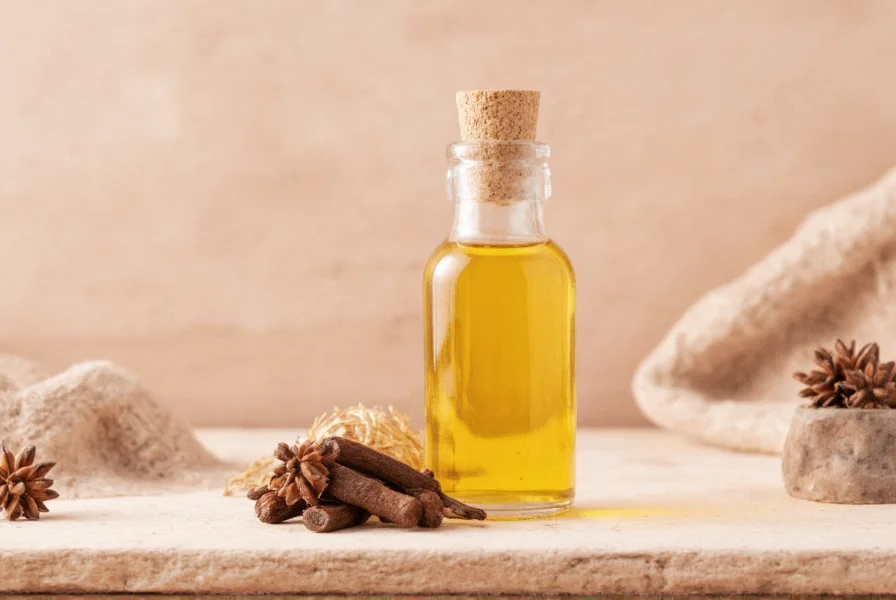Clove oil, extracted from Syzygium aromaticum flower buds, has been utilized in traditional medicine systems for centuries. Modern research validates several of its applications while clarifying limitations. This comprehensive guide examines evidence-based uses of this potent essential oil.
Understanding Clove Oil Composition
The therapeutic properties of clove oil stem primarily from its high eugenol content (70-90%), a phenolic compound with documented biological activity. Additional components include beta-caryophyllene, which contributes to its anti-inflammatory effects, and minor constituents that enhance its overall pharmacological profile. Unlike synthetic alternatives, clove oil offers a complex phytochemical matrix that may provide synergistic benefits.
Scientifically-Supported Applications
Dental professionals recognize clove oil's value as a temporary solution for dental discomfort. The American Dental Association acknowledges its use as an interim measure for toothaches while awaiting professional care. Clinical studies demonstrate eugenol's ability to:
- Reduce dental pain through temporary nerve desensitization
- Inhibit oral pathogens including Streptococcus mutans
- Decrease inflammation in gum tissue
- Provide antiseptic properties for minor oral wounds
Evidence-Based Health Applications
Research published in the Journal of Contemporary Dental Practice confirms clove oil's effectiveness as a natural remedy for toothache when applied correctly. Additional applications with varying levels of scientific support include:
| Application | Scientific Support Level | Recommended Usage |
|---|---|---|
| Dental pain relief | Strong clinical evidence | 1-2 drops diluted in carrier oil, applied to affected area with cotton swab |
| Antimicrobial surface cleaner | Moderate laboratory evidence | 5-10 drops per ounce of water for natural disinfectant |
| Skin antiseptic for minor wounds | Limited clinical evidence | Properly diluted (1% concentration) in carrier oil |
| Digestive support | Preliminary research | Aromatherapy only - not for internal consumption |
Safety Considerations for Clove Oil Use
While beneficial, clove oil requires careful handling due to its potency. The National Center for Complementary and Integrative Health warns that undiluted application can cause tissue damage. Always dilute clove oil to 1-5% concentration (1-5 drops per teaspoon of carrier oil) before skin application. Never ingest clove oil without professional supervision, as it can cause liver damage, especially in children.
Individuals with bleeding disorders should avoid clove oil due to eugenol's anticoagulant properties. Discontinue use immediately if irritation occurs. Pregnant women and children under 12 should consult healthcare providers before using clove oil for any purpose.
Practical Home Applications
For effective natural remedy for toothache, mix one drop of clove oil with one teaspoon of olive oil. Apply this solution to a cotton ball and place it against the affected tooth for temporary relief. This method leverages clove oil's dental pain relief properties without risking tissue damage from undiluted application.
As a natural surface disinfectant, combine 10 drops of clove oil with one cup of water in a spray bottle. This solution demonstrates antimicrobial properties against common household bacteria when used on non-porous surfaces. Remember that clove oil solutions don't replace medical treatments for infections.

Limitations and Misconceptions
Despite popular claims, clove oil isn't a cure-all solution. Scientific evidence doesn't support its use for:
- Treating serious infections
- Replacing prescribed antibiotics
- Long-term pain management
- Internal use without medical supervision
Many online claims about clove oil for skin infections or as a home remedy for serious conditions lack robust scientific backing. Always consult healthcare professionals for persistent symptoms rather than relying solely on essential oils.
Quality Considerations
When selecting clove oil for therapeutic use, look for products labeled "100% pure essential oil" with GC/MS (gas chromatography/mass spectrometry) testing results. Reputable suppliers provide information about the oil's eugenol content, which should be between 70-90% for therapeutic effectiveness. Avoid products with synthetic additives or diluents that reduce efficacy.
Frequently Asked Questions
Can clove oil really help with toothaches?
Yes, clinical studies confirm clove oil provides temporary toothache relief through its eugenol content, which numbs nerve endings and reduces inflammation. The American Dental Association recognizes its value as a short-term solution while awaiting professional dental care. Always dilute properly before application to avoid tissue damage.
How should I properly dilute clove oil for skin application?
For safe topical use, dilute clove oil to 1-5% concentration. This means 1-5 drops of clove oil per teaspoon (5ml) of carrier oil like coconut, olive, or jojoba oil. For facial application or sensitive skin, use the lower concentration (1%). Never apply undiluted clove oil directly to skin as it can cause chemical burns or severe irritation.
Is clove oil safe for children?
Clove oil requires extreme caution with children. The FDA warns against using clove oil in children under 2 years due to risk of severe side effects including liver damage. For older children, consult a pediatrician first and use only highly diluted solutions (0.5-1% concentration) for very limited applications. Never allow children to handle undiluted clove oil.
Can I use clove oil as a natural disinfectant?
Yes, research shows clove oil has antimicrobial properties against various bacteria and fungi. For surface disinfection, combine 10 drops of clove oil with one cup of water in a spray bottle. This solution works well on non-porous surfaces but doesn't replace hospital-grade disinfectants for serious contamination. Note that clove oil solutions have limited residual activity compared to commercial disinfectants.
What are the risks of improper clove oil use?
Improper use of clove oil can cause chemical burns, tissue damage, and allergic reactions. Ingesting undiluted clove oil may lead to serious complications including liver damage, seizures, and fluid imbalance. The eugenol in clove oil has anticoagulant properties, which can increase bleeding risk, especially for those on blood-thinning medications. Always dilute properly and consult healthcare providers before using for therapeutic purposes.










 浙公网安备
33010002000092号
浙公网安备
33010002000092号 浙B2-20120091-4
浙B2-20120091-4